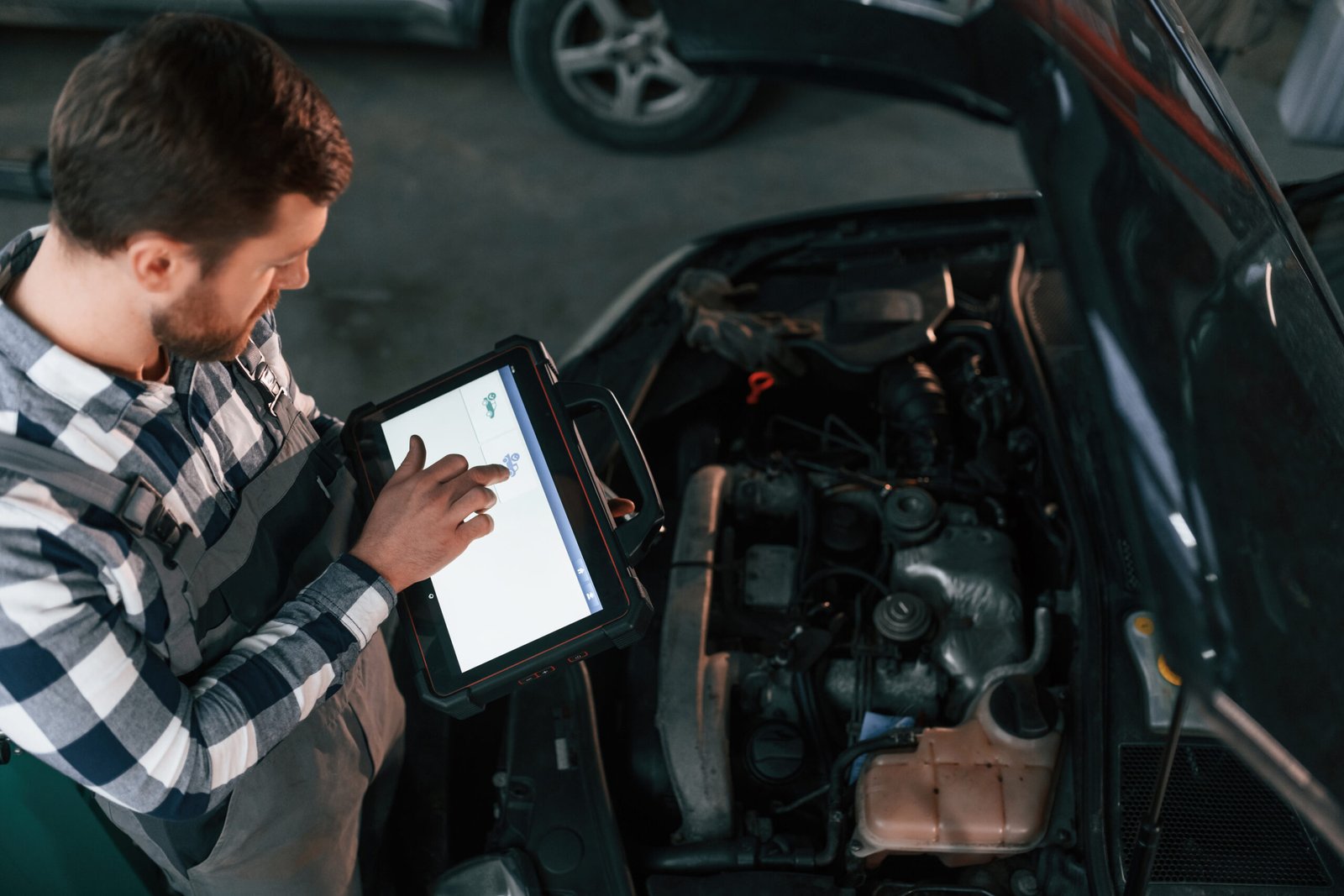We use our cars daily, but have you ever wondered what effects they have on the planet? Vehicles contribute to global warming and air pollution through toxic emissions and high fuel consumption. Read: The dirty little secret that your car may actually be more bad than good. Thankfully, you can limit its footprint with regular vehicle inspection and mobile emission tests, hence allowing you to drive your vehicle more responsibly.
The Hidden Environmental Cost of Your Car
Automobiles are one of the worst producers of greenhouse gases, especially CO2, NOx, and particulate matter. Such contaminants are responsible for:
- Climate change: CO2 keeps heat in the atmosphere, which raises the temperature and throws the climate out of whack.
- Air pollution: NOx and other emissions contribute to smog and breathing problems.
- Water and soil contamination: Liquids from vehicles and poorly discarded batteries poison systems of nature.
- Damage to wild Animals: Pollution in the air and spilling from the roads can pollute natural ecosystems and biodiversity.
That is approximately 4.6 metric tons of CO2 annually from just one gasoline-powered car! The combined impact, with millions of vehicles on the road, is catastrophic.

The Importance of Vehicle Inspections
Vehicle inspections help you ensure that everything in your car works correctly and that no extra pollutants are coming into the environment. Annual inspection for checks is needed in several regions for:
- Engine performance – An engine that is out of tune or has failed an emissions test may use more fuel and emit more pollutants.
- Exhaust system integrity – An unsound exhaust system can lead to poisonous gas leaks and increased emissions levels.
- Emission control functionality – Catalytic converters are used to neutralize harmful gases but do lose effectiveness over time.
- Fuel efficiency – Low fuel economy = higher emissions and more resources used.
Stay On Top Of These Inspections. You can avoid unnecessary pollution by catching mechanical issues early. Some governments will charge drivers a fine or ban vehicles from driving for failing these inspections.
What are Mobile Emission Tests and Their Role
An on-road emission test allows experts to measure your vehicle’s emission output while cruising. These tests:
- IDetect excessive emissions early on before the situation escalates.
- Make your car eco-friendly and legal for regulations.
- Detecting Polluting Vehicles to Reduce Total Air Pollution in Cities
- Give immediate feedback and offer enhancements to maintenance
In urban regions where air pollution is very severe, mobile emission testing helps more in these urban areas. Some governments aim to incentivize passing emission tests with tax benefits or even certification as an environmentally friendly vehicle.
How Your Driving Habits Contribute to Pollution
Besides the mechanical factors, how you drive your car substantially affects its emissions. These everyday habits that aggravate pollution:
- Frequent idling – Leaving a vehicle running while parked wastes fuel and promotes the release of superfluous CO2. Increased emissions can occur if a vehicle is idling in traffic or while parked, even for short periods, so turn off that engine.
- Aggressive driving – Fuel use and emissions increase as acceleration speeds increase and hard-braking events occur.
- Overloading your vehicle – Extra weight means extra engine work, leading to more fuel consumption.
- Poor Vehicle maintenance: – A poorly maintained vehicle burns more fuel and produces more emissions.
Fuel-efficient driving habits can help reduce your carbon footprint and save you money on fuel.
Simple Steps to Reduce Your Car’s Environmental Impact
Fortunately, there are some solid steps you can take to reduce the impact of your car on the planet.
- Drive efficiently – Keep your speed in check, do not accelerate or brake suddenly, and anticipate traffic movement.
- Maintaining the correct air pressure in your tires—Under-inflated tires will have much higher rolling resistance, forcing the engine to work harder and consume more fuel.
- Use cleaner fuel – If possible, stick to low-sulfur gasoline, biofuels, or electricity.
- Perform regular maintenance – change your oil, clean the air filter, and address minor engine issues before they manifest into more significant problems.
- Carpool or use public transport – Find a ride-share or use the bus. Reducing pollutants by Taking a few cars off the street is straightforward.
- Consider switching to an electric or hybrid vehicle – Though not completely free of emissions, these types of automobiles can release markedly less pollution than conventional gasoline automobiles.
The Future of Sustainable Transportation
The positive aspect is that the transport destiny is heading toward sustainable development. Some significant trends are driving the transition to a cleaner transportation sector:
- Electric Vehicles (EVs) – Thanks to improved battery technology, EVs are now more practical and affordable.
- Hydrogen Fuel Cell Cars – These vehicles produce only water vapor as an exhaust product and are, thus, a more appealing alternative to gasoline-powered cars.
- Improved Public Transport – Many cities are adopting electric buses and trains to reduce emissions in urban areas.
- Stronger Environmental Regulations – Around the globe, politicians are imposing stricter emission requirements to force automakers to use cleaner technology.
We can all play our part as consumers by choosing more eco-friendly alternatives and expressing a desire for greener options.
Conclusion
Your vehicle’s sway on the planet is inevitable, yet the uplifting news is that even little changes can have a significant effect. Regular vehicle inspection and mobile emission test lines are among the most critical factors in lowering emissions and protecting the environment from vehicle-creating environmental pollution. You can do this by making more conscious decisions such as performing maintenance on your car, driving fuel-efficiently, opting for alternate modes of transport, contributing to conscientious driving, and taking one step closer to a cleaner, greener planet.
Does your vehicle have a passing inspection or emission test due? These are only a couple of the many reasons why you need a compost test! So schedule one today and start reducing your environmental footprint!







E aí, galera! Alguém já se aventurou no A5 Game Casino? Tô curioso pra saber se a sorte está brilhando por lá! Dizem que tem uns jogos bem legais. Se alguém tiver dicas, manda pra cá! a5 game casino
Hey there! Gave win99club a try the other day. Pretty decent selection of games, and the signup process was a breeze. If you’re looking for a new spot to hang out online, give it a shot!
88jilicasino is alright. Got some fun games and the payouts seem fair. Nothing groundbreaking, but a solid option for a bit of online gaming. 88jilicasino
For the gà đòn enthusiasts, I’m seeing people talk about gà đòn c1. Might be something worth checking out, right?